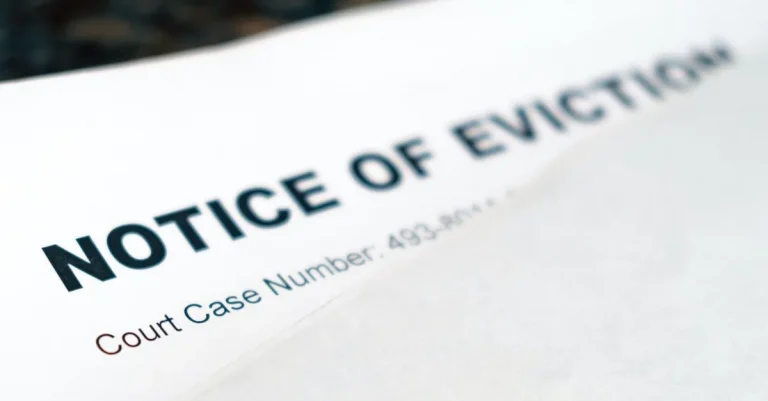No Indictment After 180 Days In Texas: What Happens Next?
If you or a loved one has been arrested in Texas but not indicted within 180 days, you may be wondering what happens next. The wait for an indictment can be stressful and confusing. Fortunately, Texas law provides some answers on the process and your rights.
In short, if no indictment is returned within 180 days of arrest in Texas, the accused must be released from jail on a personal bond or reduced bail. But release from custody does not mean the case is dismissed. Prosecutors can still pursue charges by re-filing the case. Here’s a detailed look at this rule and what it means.
Texas Law on Indictments Within 180 Days
In Texas, the Code of Criminal Procedure Art. 32.01 sets forth the requirement that an indictment must be issued within 180 days from the date of arrest or the defendant’s release from custody. This law aims to ensure a timely resolution of criminal cases and protect the rights of the accused.
Explaining Texas Code of Criminal Procedure Art. 32.01
Texas Code of Criminal Procedure Art. 32.01 states that if an indictment is not presented against the defendant within the prescribed 180-day period, the court may dismiss the case upon the defendant’s motion.
This provision prevents unnecessarily prolonged detentions and promotes the efficient administration of justice.
Requirements to release defendant from custody
If an indictment is not filed within the 180-day timeframe, the defendant’s attorney can file a motion to release the defendant from custody. The motion must be supported by evidence showing that the indictment deadline has passed and that the defendant has not waived their right to a speedy trial.
Upon review of the motion, the court will determine whether to grant the release of the defendant. If the court finds that the defendant’s rights have been violated due to the delay in indictment, they may order the defendant’s release from custody.
Case can still proceed after release
It is important to note that the dismissal of a case due to the failure to indict within 180 days does not mean that the charges against the defendant are dropped entirely. The prosecution can still re-indict the defendant and proceed with the case at a later time.
However, it is crucial for the prosecution to carefully consider their options and weigh the potential impact of a delayed indictment on the case. They may need to gather additional evidence or reassess the strength of their case before proceeding, especially if the defendant has been released from custody.
For more information on Texas law regarding indictments and the 180-day rule, you can visit the official website of the Texas Legislature at https://statutes.capitol.texas.gov/Docs/CR/htm/CR.32.htm.
What Happens When the 180 Days Expires
When the 180 days expires without an indictment in Texas, several possible outcomes can occur. Here are some of the most common scenarios:
Defendant entitled to release from custody
Once the 180-day period has passed without an indictment, the defendant is typically entitled to release from custody. This means that if the defendant has been held in jail or on bail during the investigation, they will be released and no longer held on those charges.
It is important to note that this does not mean the case is over; it simply means that the defendant cannot be held in custody without an indictment.
Prosecution can re-file charges and continue case
Even though the 180-day period has expired, the prosecution still has the option to re-file charges and continue the case against the defendant. This means that they can present the case to a grand jury again and seek an indictment.
However, they will need to provide new evidence or information to support the charges since the previous 180-day period has expired.
Grand jury can still return indictment later
Just because the 180-day period has elapsed without an indictment does not mean that the case is permanently closed. In some cases, the grand jury may still return an indictment at a later date. This could be due to new evidence coming to light or a change in circumstances.
It is important for the defendant to stay informed and be prepared for the possibility of an indictment even after the initial 180-day period has expired.
It is worth mentioning that the specific procedures and outcomes may vary depending on the jurisdiction and the nature of the case. To get accurate and up-to-date information about what happens after the 180 days expire in a specific Texas county, it is recommended to consult with a criminal defense attorney who is familiar with the local laws and procedures.
Recourse for the Accused After 180 Days
When facing a situation where no indictment has been made within 180 days in Texas, the accused still has options to pursue. These options provide a path forward for the accused to ensure their rights are protected and to seek justice. Here are some possible courses of action:
File a writ of habeas corpus
A writ of habeas corpus can be filed by the accused to challenge their detention and seek release. This legal remedy allows individuals to contest the lawfulness of their imprisonment and request a hearing before a judge.
By filing a writ of habeas corpus, the accused can present arguments to demonstrate that the delay in indictment has violated their constitutional rights. If successful, this can result in the accused being released from custody or having their charges dismissed.
File for dismissal based on right to speedy trial
The accused can also file for dismissal of their case based on their right to a speedy trial. The Sixth Amendment of the United States Constitution guarantees individuals the right to a speedy and public trial.
If the 180-day period has passed without an indictment, the accused may argue that this delay has violated their constitutional right. It is important to consult with a criminal defense attorney to determine the best approach for filing a motion for dismissal and to ensure that all legal requirements are met.
Consult with a criminal defense attorney
One of the most crucial steps an accused individual can take after 180 days without an indictment is to consult with a criminal defense attorney. A skilled attorney will have a deep understanding of the legal processes involved and can provide guidance on the best strategies to pursue.
They can review the case, assess the impact of the delay in indictment, and help the accused explore potential legal options. It is essential to work with an attorney who specializes in criminal defense to ensure the best possible outcome.
It is important to note that the specific options available to the accused may vary depending on the circumstances of each case. Consulting with a legal professional is crucial to understand the individual’s rights and the appropriate steps to take.
Strategies for the Defense During the Waiting Period
When facing the possibility of no indictment after 180 days in Texas, defense attorneys need to employ strategic measures to protect their clients’ rights and build a strong defense. Here are some key strategies to consider during this waiting period:
Preserve evidence and interview witnesses early
One of the most crucial steps for the defense is to preserve evidence and interview witnesses as early as possible. By doing so, the defense can gather vital information and ensure that valuable evidence is not lost or tampered with.
This early investigation can help identify potential weaknesses in the prosecution’s case and provide opportunities for the defense to build a strong defense strategy.
It is important to note that any evidence gathered during this stage should be done in accordance with the law and ethical guidelines. Defense attorneys should consult with experts and familiarize themselves with the rules of evidence to ensure that their actions are within legal boundaries.
Consider asking prosecutor for a case update
During the waiting period, it can be beneficial for the defense to reach out to the prosecutor and request a case update. This can help the defense gain insight into the progress of the investigation and potentially uncover any weaknesses or inconsistencies in the prosecution’s case.
By maintaining open lines of communication with the prosecutor, the defense can also negotiate for favorable outcomes, such as a dismissal or reduced charges. It is important for defense attorneys to approach these discussions with professionalism and a clear understanding of their client’s rights and objectives.
Weigh benefits and risks of waiting for indictment
While waiting for an indictment can be a challenging and uncertain time, it is crucial for defense attorneys to carefully weigh the benefits and risks of this waiting period. The decision to wait for an indictment or seek alternative resolutions should be based on a thorough analysis of the case’s strengths and weaknesses.
Defense attorneys should consider factors such as the strength of the evidence against their client, the potential for new evidence to emerge, and the potential impact of a trial on their client’s well-being and reputation.
They should also take into account the possibility of negotiating a favorable plea deal or seeking alternative resolutions through diversion programs or pretrial interventions.
Ultimately, the defense must make an informed decision that aligns with their client’s best interests and the overall defense strategy.
By employing these strategies during the waiting period, defense attorneys can proactively protect their clients’ rights, gather crucial information, and build a strong defense. It is important for defense attorneys to stay vigilant, adaptable, and knowledgeable about the legal processes involved in their clients’ cases.
Frequently Asked Questions About the 180 Day Rule
Does the clock stop if defendant is re-arrested?
Yes, the clock does stop if the defendant is re-arrested. According to the 180 day rule in Texas, the time period for indictment is paused if the defendant is re-arrested for a different offense. This means that the 180 day deadline will be extended by the number of days that the defendant is in custody for the new offense.
It is important to note that the clock only stops if the defendant is re-arrested, not if they are released on bail or parole for the original offense.
What happens if the defendant is in federal custody?
If the defendant is in federal custody, the 180 day rule does not apply. The rule only applies to defendants who are in state custody. In cases where the defendant is in federal custody, the federal court system has its own set of rules and procedures for indictment timelines.
It is important to consult with a legal expert who is familiar with federal law to understand the specific timelines and procedures in these cases.
Can the deadline be extended or waived?
The 180 day deadline for indictment can be extended or waived under certain circumstances. In some cases, the prosecution may request an extension from the court if they need more time to gather evidence or conduct further investigations.
The court will consider the reasons for the extension and make a decision based on the circumstances of the case. Additionally, in some cases, the defense may waive the 180 day rule altogether, either by agreement with the prosecution or by failing to raise the issue in a timely manner.
It is important to consult with a legal expert to understand the specific rules and procedures regarding deadline extensions and waivers in your jurisdiction.
Conclusion
In summary, Texas law requires release from custody after 180 days without an indictment, but does not prohibit prosecution from moving forward. The 180 day rule provides important due process protections, but does not guarantee dismissal. Those awaiting indictment should explore all legal options with an attorney.








